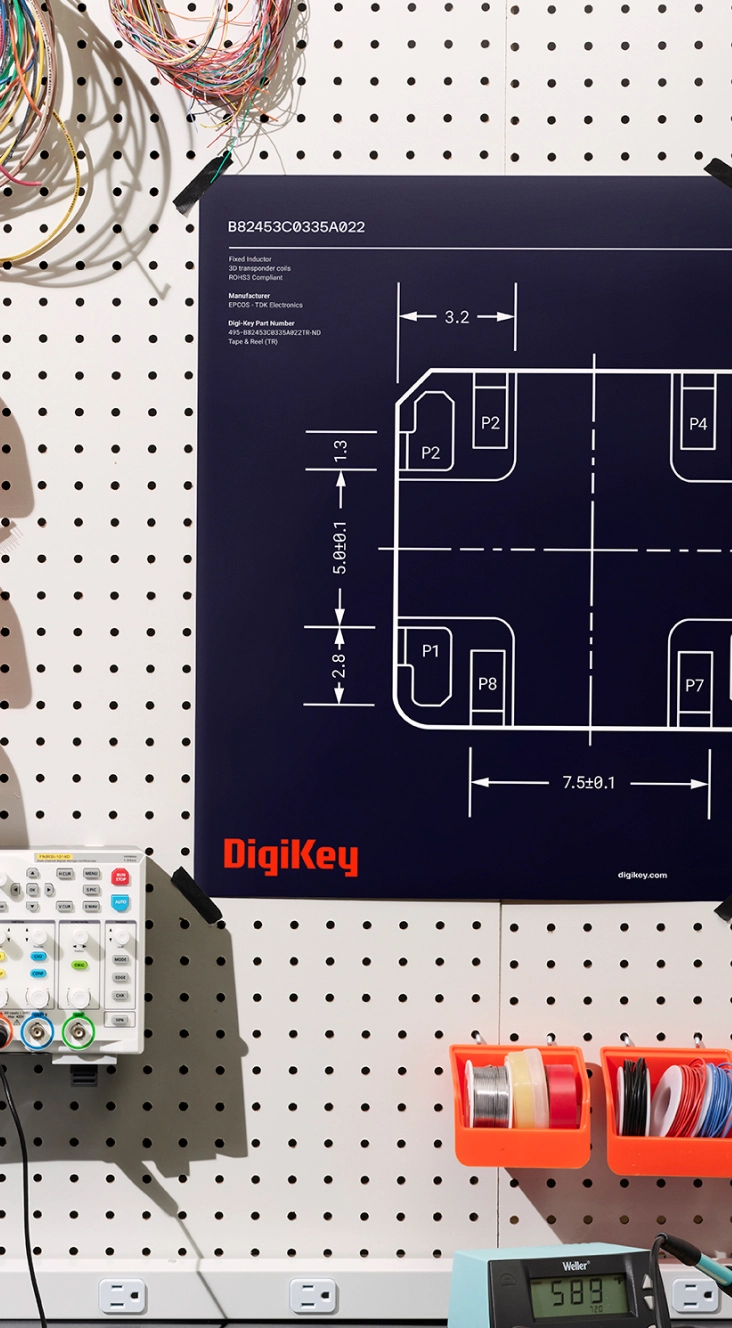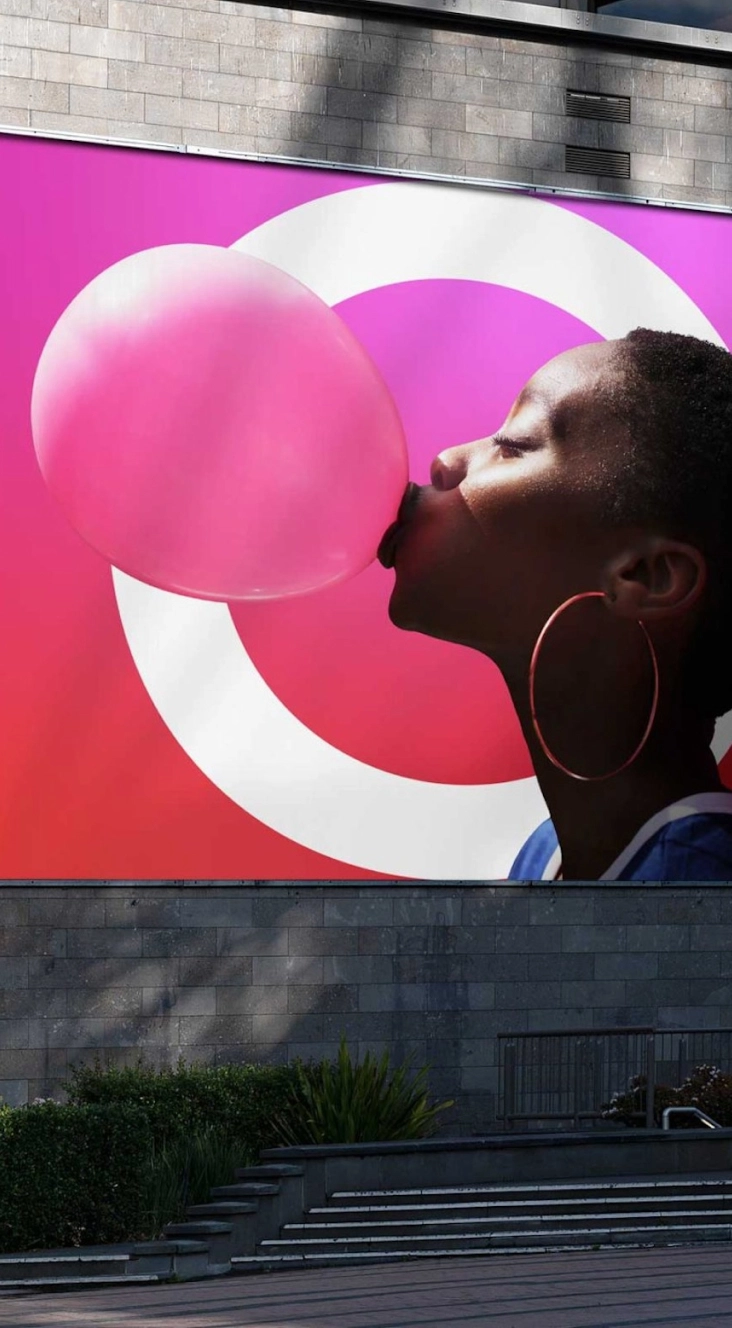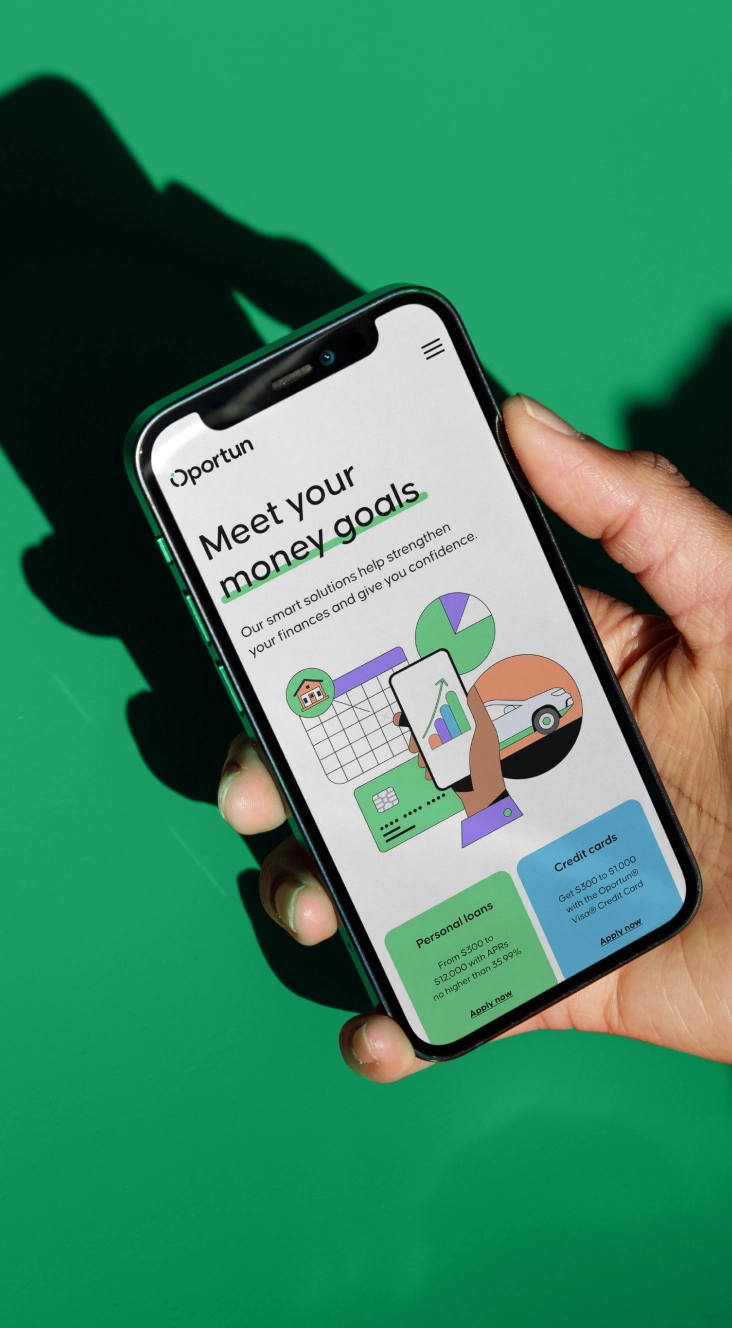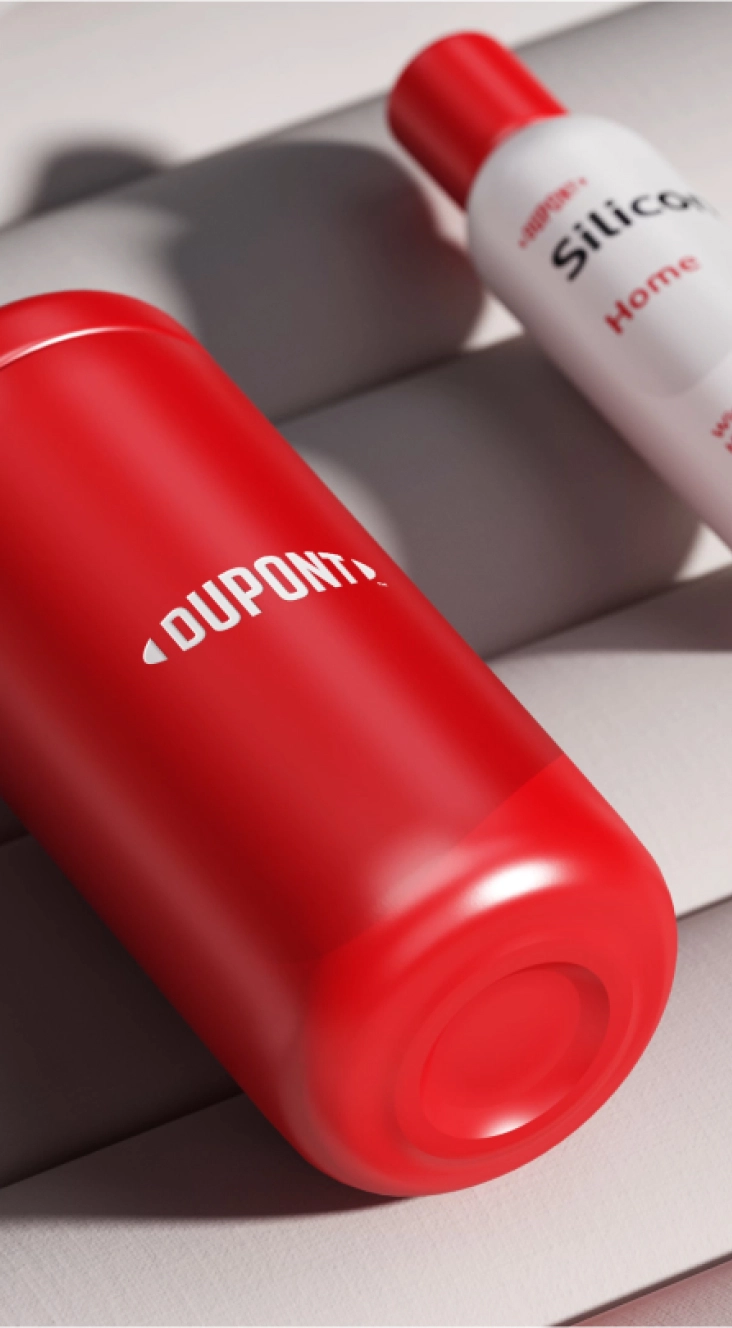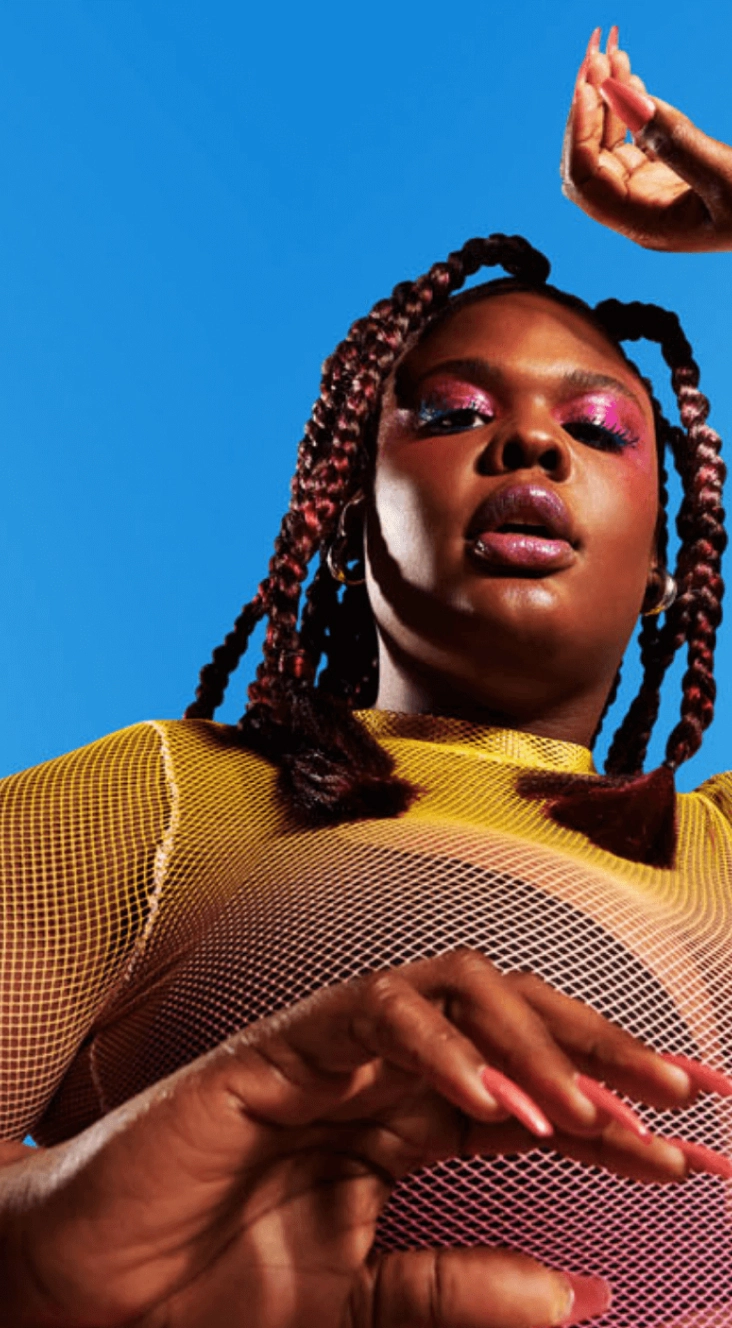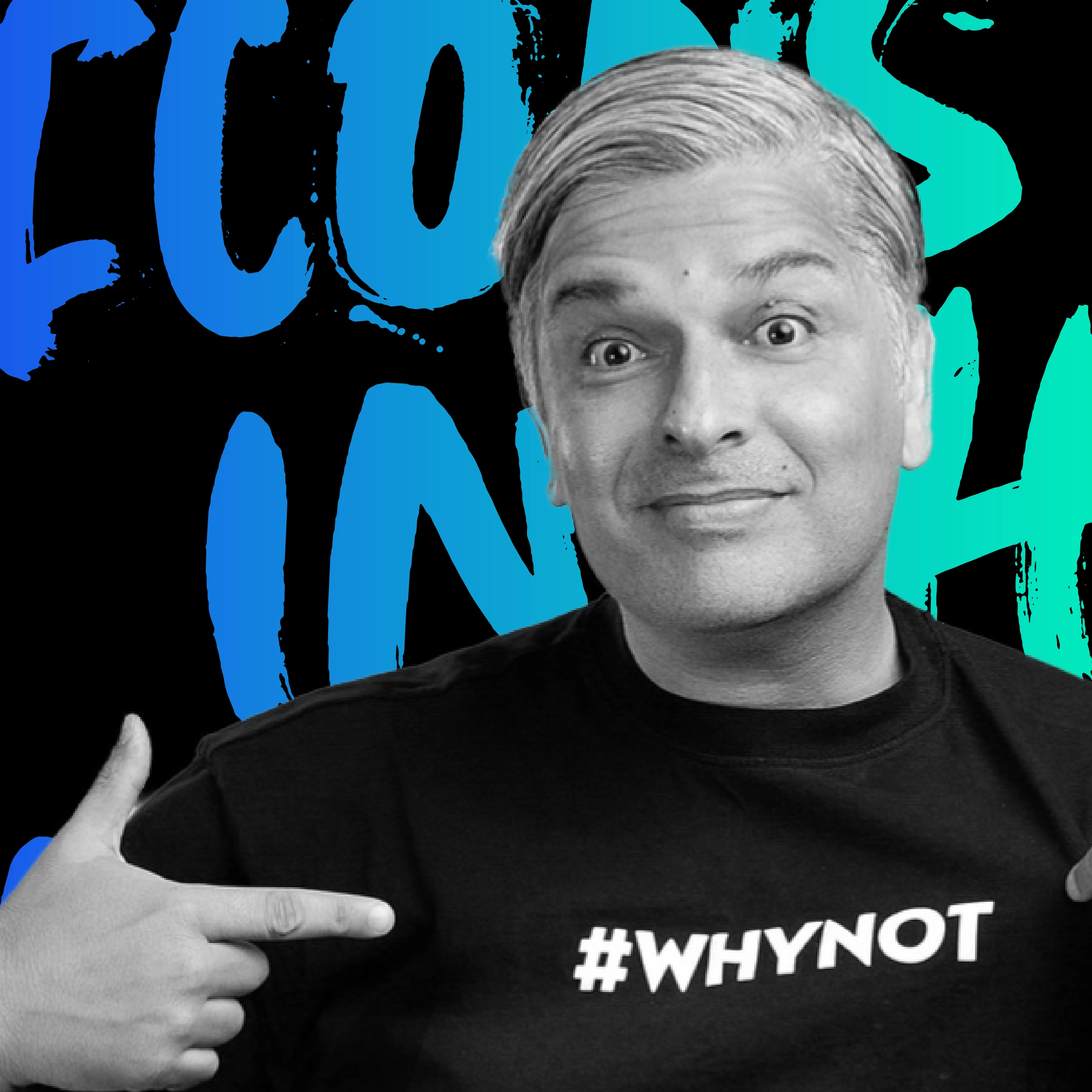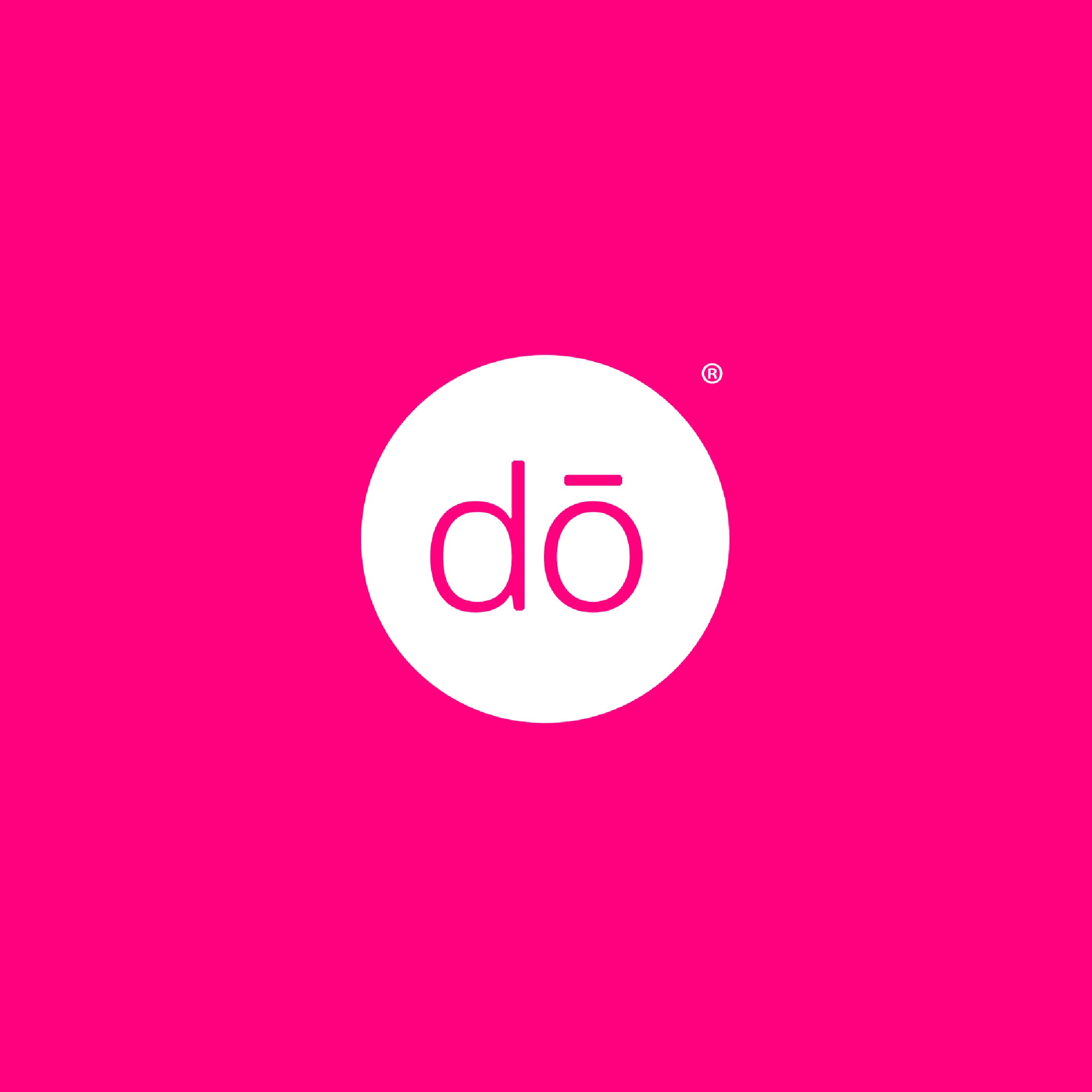Fernando Machado has never been one for resting on his laurels. From brand guru at Unilever, to global CMO at Burger King, to CMO at Activision Blizzard, Fernando’s career has been built on the desire to never stop learning. Now, this brand genius is taking on his boldest role yet as CMO of NotCo, a Chilean-based startup that uses AI power technology to develop plant-based foods. In this episode, Fernando pulls back the curtain on his most celebrated creative campaigns, and shares why AI isn’t a threat, why more marketers should be the CEO and the importance of staying present.
Heather Stern: Creative breakthroughs are often the result of taking bold risks. No one knows this better than today's guest, Fernando Machado, who is one of the world's most celebrated, envelope-pushing marketers. From brand guru at Unilever, to global CMO at Burger King, to CMO at Restaurant Brands International, to CMO at Activision Blizzard, Fernando has built a career driving cultural relevance and business growth for some of the world's best brands—all centered on the belief that creativity creates competitive advantage. Now, he's taking on perhaps his boldest role yet as CMO of NotCo, a Chilean-based startup that uses AI power technology to develop plant-based foods. I'm so excited to sit down with this brand genius to talk about his remarkable career and his thoughts and predictions on creativity, purpose, sustainability, AI, and a bunch of other cool stuff. Welcome, Fernando. It's so good to see you.
Fernando Machado: Thanks for having me, and thanks for the kind words.
Heather: Yes. Well, lots have been said about you and all of the incredible things that you've done for the industry. And it seems like you just keep pivoting. Lots of topics I want to cover—Dove's Real Beauty Sketches, Burger King and your time there, Call of Duty: Vanguard—but I really want to start with NotCo and Giuseppe. Tell me about NotCo and the role.
Fernando: Yes, look, I always try to put myself in a position that I'm learning a lot. Throughout my whole career, that has always been the approach. I think it's something that...I was raised with that mindset. My dad used to always say that knowledge is the most important thing that you can ever get. And whether it was Unilever or Activision or Burger King or RBI, I was really making career choices that would put me on that position to have a steep learning curve. My moves have been pretty much driven by that, too. Where can I have the steepest learning curve? I always worked thinking that I had a startup mindset—but what the hell did I know? I never worked in a startup before, but I was always trying to move fast, break things, learn by doing, and cut the bureaucracy a bit no matter how big or small the place I was working in. And I always had this idea of working on a startup at some point.
I think I'm on a level of seniority today where I can have a much bigger impact than just marketing. NotCo was a company that I was eyeing for quite some time—from the time I was at Burger King. This is maybe three, four years ago. I think it was actually pre-pandemic. First time I heard about them was in a conversation with Yuri, who was the president for Burger King Brazil. He came to me and said, "Hey, you should take a look at these guys. They have a pretty cool mindset about how they do things; their products are called Not, like Not Mayo, Not Milk, Not Burger. And, they use AI to create the products that they develop. Back then, AI was not as hot as it is today.
It sounded really cool. I'm a bit of a geek myself, so it sounded really cool to see what they were up to. I started to follow NotCo on social, seeing what Matias (who is the co-founder and CEO) was posting and the stuff that they were doing. I built a relationship with Matias because of that. I think that, the first time we spoke, it was because I made a comment on something that he posted on LinkedIn and that triggered, sparked, our conversation behind the scenes. This was years ago. And then, the conversation evolved toward the end of last year/beginning of this year. I was not planning to leave Activation Blizzard, necessarily. I was there for two years, which is a short tenure in my mind. But I felt this was one of those opportunities that you cannot let go.
I had a really good conversation with a friend, who told me like, ‘Hey, how would you feel if you leave Activision and they do well.’ I was, like, ‘Well, I think that they will do well no matter what. They have great games and great people.’ Then he asked me, ‘How would you feel if you don't go to NotCo and they do well.’ I was like, ‘Mm, I would feel really bad about that.’ So, I decided to take the leap of faith and join the company. That was, officially, early April of this year. And so far, so good. It has been a fun ride. It's an amazing group of people, amazing technology, which is something that I really appreciate and like. And it’s a brand that's not afraid of doing bold things. So, I'm super excited about the opportunity.
Heather: Tell me a little bit more about the technology. We now, as you say, talk about AI, it seems, all the time. But deconstruct how AI is used to create these plant-based technologies.
Fernando: To me, AI at its best is used to augment humans' abilities. It's never AI by itself. I see AI as a tool, and I think that that's how we see it. We have a really strong AI team. One of the co-founders is the AI guy. That's Karim. He has a very strong team underneath him with Hadid and lots of very talented people. And we created this AI, which we named Giuseppe. It's named after the painter Giuseppe Arcimboldo from mid-1500s who used to do portraits with fruits and vegetables. You probably saw one at some point.
It's basically creating art with plants. That's why the AI is called Giuseppe. And the way we do things today, and the reason why I'm saying this today, is that we take an animal-derived product and do a whole analysis on that product—chromatography, physical properties, all sorts of things—to create almost like a DNA or snapshot of what the product is. We feed that into Giuseppe, and then Giuseppe proposes four or five recipes that could match that target. Then, the chefs take those recipes, prepare the product, try the product, and give feedback to Giuseppe.
Heather: Does Giuseppe get mad when people don't like what he creates?
Fernando: No, he's pretty chill.
Heather: He's chill. Okay.
Fernando: Yeah. And, he experiments a lot. He does different experiments, and sometimes the variables are very far from each other. Some of the ingredients that Giuseppe proposes are unconventional, I would say. And with the feedback of the chefs in our R&D team, the AI basically converges to a superior formulation. But the beauty of the products that we have is that, for instance, our milk—which we call Not Milk—is not a single-ingredient product. I always drank plant-based milk, but you have to choose oat milk or almond. And there are positives and negatives about that when you're stuck with one ingredient. Whether that is the nutrition profile that you can get or the physical properties—usually oat or almond—they don't foam really well. I don't know if you drink plant-based milk, but try to make a cappuccino and take a look at the difference between how cow's milk foams and those. We are not limited by that.
Our nut milk has cabbage, pineapple, and coconut, which may be ingredients that one would not think about adding to that type of formulation. But because we use AI, and because we have this interactive process, we end up getting a superior formulation with ingredients that may not be what a human would recommend at first. Our Not Chicken has strawberry in the formulation. You know what I mean? If you came to me and said, ‘Fernando, how would you formulate a plant-based chicken?’
Heather: You probably wouldn't say strawberry.
Fernando: I would probably not recommend strawberry.
Heather: Yes.
Fernando: The thing that excites me the most is what's yet to come—because the more we play with Giuseppe, the more we learn about the tool, and the more the tool gets better at what it does. Not only that, but the cycles to develop a product get very much shorter. Think that one of the first products that we developed, which was Not Mayo, took 18 months—which is relatively short. One of the latest ones we developed, which was the custard and shake that we have—the plant-based custard and plant-based shake that we have on Shake Shack—took us three weeks to develop.
Heather: Wow!
Fernando: You know what I mean? So, the tool gets faster, and the tool gets better. Matching the animal target is something that was imposed on us by the industry. It doesn't have to be that way. We can create plant-based food that actually goes beyond and has either a unique taste that you never experienced before or has a nutritional profile that's better than the animal target or at a better cost. We can optimize to anything.
Heather: So many different variables.
Fernando: So, that's what has me the most excited—this next frontier—products that will have to be elevated either through the functional properties or nutrition or taste, and it happens to be plant-based. And we can do that today. We have the technology to do it.
Heather: That's amazing…the idea of continually learning and taking on a new opportunity to do that. In a way, if you look back at your experiences at Unilever and at Burger King, and then even at Activision, it feels like it has kind of all come together for this new role. You're pre-IPO. There's a lot of excitement around what the business could do for the industry. What is the vision for the role? As you said, you see it as more than just marketing. What are your goals, and how has it been going since you got there?
Fernando: I think that since I became CMO for Burger King and then RBI a couple of years ago—and looking at the other CMOs in the industry that I admire—they do more than just the classic four Ps or just the CMO role. At RBI, I had the opportunity to get involved with GNI, ESG, and I felt that the COO, the CFO, and myself were kind of the right-hand arm of the CEO. Moving to Activision Blizzard, I also tried to have that influence. I was executive sponsor of the Latinx network. I was involved with the ESG, especially how we report ESG. And coming to NotCo, it's a startup.
We are only 400, 450 people. The leadership team is relatively small, and you end up dipping your toes or your finger into everything. You know what I mean? We work very collaborative and close together. Terry, who is our legal counsel; Taylor, who is our CFO; Jose, who is our COO; Matias, who is our co-founder & CEO; Karim, Hadid, Lou, who is my head of marketing…it's really like one team. There is not much about layers and global structures, regional structures, local structures. You have ownership of that business, and you have accountability and responsibility for the destiny of that business.
If we don't do the right thing for the business beyond just marketing or finance or this or that, it doesn't move. You know what I mean? And, you are right. I think that every job that I did, like when I moved from...I was 18 years with Unilever. It was an amazing marketing school. Great people. I still have loads of good friends, and I still cheer for Dove and for the brands there on the sidelines. It never felt that long, because it was moving accounts, moving brands; but there was a point in time where I started to feel like, ‘Oh, I need to try something different.’
And, going to QSR Fast Food—in the beginning it was just Burger King—it felt like a great step, because it's a completely different culture; RBI, 3G, a completely different business model from Unilever, franchisees that I had to influence. I didn't have to do that while I was at Unilever. A space, the restaurant…I didn't have a space. I was selling to Walmart and Walgreens and CVS. I didn't control that. So, it was a lot of learning. A little bit over seven years there, and then I felt, ‘Oh, I need to do something digital. Like purely digital.’
Heather: Purely digital native. Yes.
Fernando: I did digital transformation at RBI. We launched mobile order and payment, delivery, loyalty, all those things. I did a lot of work there, but it was not digitally native. I love video games.
Heather: Yes.
Fernando: So, it felt right. It's digital. It's something that I like. It's amazing brands on Activision Blizzard. And then a startup, which was the missing piece of the puzzle. I always try to do things that will build on what I've done before. NotCo has loads of partnerships with fast-food restaurants, whether it's Burger King, Domino’s, Starbucks, Shake Shack in the US…so many. It is important that I know that side of life. Oh, we also sell to retailers. Yes, I was in CPG for 18 years. And, by the way, e-commerce is really important. I just came from doing a job that was digitally native, so it all comes together, as you said.
Heather: So, when you come back as a guest in a year or two, you're going to be somewhere in space doing something totally different, drawing on all these experiences. But for now, we'll stay down here on Earth. One of the things that we talked about initially was the power of creativity and how it surprises you how sometimes we have to continue to prove the business value. Obviously, marketing and brand go well beyond communications, but communications are an amazing way to create an emotional connection. And I think you are the most awarded marketer in terms of literally hundreds and hundreds of awards for the campaigns that you've developed. Tell me about one or two that just stick with you and that you’re most proud of. I know it's hard to pick among your children, but what would you say?
Fernando: Look, I think it's funny that you still need to make the case for creativity—but we still have to for some reason. I think, in life, anything that's creative is better than something that's not creative. I think people tend to agree with that.
Heather: Yes.
Fernando: I think where people struggle is that something that's creative usually is something that's new, right? And something that's new leads to a bit of uncertainty in the system. And uncertainty triggers fear, which is like an automatic reaction. It's a defensive mechanism toward uncertainty, toward preferring to do what's tried and tested and trusted. But that's not how it works. I think that's where people get stuck a little bit. Or when people believe or try to think that marketing should be just a black box, where you know exactly how many coins you put in this side and can predict…
Heather: What's going to come out on the other end.
Fernando: ... precisely how many coins.
Heather: Yes.
Fernando: Yes, and you can predict to some extent; but, especially if you're doing new things, it becomes harder, because you are breaking the model. I'm totally up for trying to measure everything, but I'm also mindful that sometimes you cannot measure absolutely everything.
Anyway, going back to your question, I think I was fortunate enough to work with some amazing people and some amazing creative partners throughout my whole career. I grew up in Unilever, looking up at people who were doing absolutely insane creative work—whether that was Simon Clift or Steve Miles, who was my boss when I was on Dove and when I was on Vaseline. There were so many people doing great creative work. And it is never a one-person show. I think I've learned a ton, because I was surrounded by great people. I would say that if you force me to pick one campaign for each of the brands, I would probably pick the Real Beauty Sketches that we did around 2012, 2013.
Heather: It was so disruptive. I remember seeing it and studying it…just this amazing idea. But, go ahead.
Fernando: Yeah. We were doing lots of great things on Dove.
Heather: Yes.
Fernando: Everything got completely under the shadow of Sketches, because Sketches was this nuclear thing. I was living in London; and anywhere you went, people would be talking about the campaign. It was insane. It was the first time that I experienced that, to do something that became a global topic of conversation. Every single country in the world was talking about that.
Heather: Yes.
Fernando: It was on TV, the news, on the internet. It took over mass media. And, again, amazing team: Steve Myers, who was my boss, was leading Dove; I and the media team for Unilever; and the agency team from Ogilvy, Sao Paulo— Bruno Ugo, Diego, Beto, and Selmo; Veronica, who was the producer; John Carey who shot the campaign…it was really a bunch of very talented people working very hard, working together, in one of those moments where all of the stars align and you create something that's really special. That's a really big one.
Heather: Did you have to fight to get that idea through?
Fernando: No, because of Steve. I think that we are both different and similar in many aspects. He was also someone who was constantly fighting Unilever. He was much more senior than I was, and constantly fighting Unilever to do things differently, to kill the bureaucracy, to just do it. And we did, almost completely under the radar. He viewed the thing when it was ready, and then it was about convincing countries and markets to jump in. We had a lot of support from Paul Polman, who was the CEO. We had support from the CMO. Everyone who saw the campaign, after it was ready, got behind it. So, really, it was a team sport. Lots of people were involved. Marc Mathieu provided support. I could go on and on and on with everyone who was involved on that one.
Heather: Yes.
Fernando: On Burger King, I think we did a bunch of cool things. We had Mac Whopper, Burning Stores, Whopper the Tour, Emoji Whopper.
Heather: Emoji Whopper, I think, is almost this idea that feels incongruent with what you think you should do.
Fernando: Yes.
Heather: And, yet, there's such a beautiful story behind it. Tell me about that one.
Fernando: We were working for five years to remove ingredients from artificial sources from the food. It was not easy at all to do the work; because every time you remove an artificial ingredient, it has an impact on taste. And no one is willing to compromise on taste…I mean consumers. Every time you remove an ingredient that's artificial, it may have an impact on shelf life of the product. It may have an impact on operations. Like mayo, for instance. When we removed preservatives from artificial sources, we had to refrigerate mayo. Good luck changing the procedure of how to store mayo in 15,000 restaurants. It's a nightmare. Any small thing is hard. That was not a small thing. It took us a long time and cost to do develop the right raw materials.
But we believed in it. It was part of our ESG program. It was part of one of the commitments that we had made at RBI, as a company. We knew that we had to improve the quality of our food and believed that the food should be real. So, it was a long time in the making. And, even though it was something so important, we know that people have other things to worry about rather than whether Burger King has ingredients from artificial sources or not. So, in the grand scheme of things, it's something really big for the brand. But people have their lives and their concerns and their worlds. They're thinking about other things. So, we knew that we had to shake people out of their status quo and pay attention to the message.
There is a quote from Bill Bernbach that I love. Bill Bernbach is one of the founders of DDB, the B of DDB. He used to say something like, ‘If your advertising goes unnoticed, everything else is academic.’ So, I really learned that, whatever you do, it should command attention. And, the first agency that presented the idea was DAVID Miami. And then, INGO. We used to work together with DAVID and INGO, presented a very similar idea, but made an evolution on the idea. In Publicis, which was a total coincidence, I also presented a very similar idea, making an evolution on the idea. Those three guys decided to collaborate, which I think is awesome.
Heather: Fantastic.
Fernando: We brought the idea to life, which was Emoji Whopper—which, again, was one of those that, no matter which country you were in, you probably got to see the campaign. I'm very proud of that. I'm proud of Whopper de Tour. I'm proud of MacWhopper. They were all campaigns that got the world to talk about the brand, Burger King. I'm proud of what we did with the Popeye's chicken sandwich; you probably remember the craziness around that, too.
Heather: Yes.
Fernando: That was more on the product side, I would say, than the campaign itself. But the campaign did do a trigger, too. The product was just unbelievable, as well as what the Popeye's team did on that one. On Activision, we did some really cool stuff, too, whether it was for Candy Crush or Call of Duty or even the launch of Diablo 4, which happened just recently—trying to break the mold and do things that are different than just a trailer of a game. And now, NotCo's the same. It's just amazing that we already got some recognition for the NotCo work. We got a Gold Lion at Cannes.
Heather: I know. Congratulations.
Fernando: …which is insane. I felt that we had a chance of getting something, but getting a gold and a silver? In a shortlist, with no other idea, this was just huge for the team. We are still a small company. We're still building awareness. It's not like Nike or Apple or Burger King or Dove, where people kind of knew where you were coming from with the story of the brand and what the brand is about. In our case, I'm one step behind. And the team embraced the challenge and the spirit of the brand and creativity. We won a gold and a silver with a campaign that came from Chile, from MRM, and we were shortlisted with a global campaign that we also did with AKQA Bloom, with Zampa & Zaro, who are based out of Miami at the moment.
Heather: In one of the campaigns, you've used AI to create this. Tell me about that experience. Also, I remember we were talking and you said, ‘Last year, everybody's talking about the metaverse. This year, everybody's talking about AI.’ Is it really a different conversation, or not? Tell me first about the use of AI in the campaign, and then just your perspective on where we are and whether we should be optimistic or pessimistic or somewhere in the middle.
Fernando: Those are good questions. It's not a must for NotCo to use AI on the campaigns; but if there is an opportunity to do so, I think it helps tell the brand story—because the brand story comes from AI.
Heather: It’s centered on that technology.
Fernando: Yes. So, in that specific case, the Old Animals campaign—which was shortlisted in Cannes—the insight that the guys came up with was the fact that, when you think about an animal, usually you don't think about an old animal. In the food industry, these animals live a fraction of what their life expectancy would be had they been on the farm. For sure, if you lived on a farm, you probably know what an old animal looks like. Or depending on the country you are in, which may be a little bit less urban, you also know that.
But in general, especially in the city centers that tend to over index with plant-based, the story is different. I cannot see many old cows or pigs or chickens in Sao Paulo or in New York or in LA. So we used AI to create those images—which, again, was not done to save cost; it was to kind of underpin the story and explain that we use AI just like we use AI to develop our food. That was what was behind the use of AI on that one. I am Brazilian, which is why I have this funny accent. And, I'm like…
Heather: Maybe I'm the one with the funny accent.
Fernando: …hopelessly optimistic about things.
Heather: Yes.
Fernando: And because I see AI as a tool and something that helps augment human capacity, I'm very optimistic about it. Will some people lose their jobs because of AI? Maybe. But I don't see the work being reduced because of AI. I actually see us doing more because of AI. I will do more assets; I will do more experimentation. I will be happy to prototype even faster than I used to before. I may save time on pretesting. I don't know.
So, I don't see it as like, ‘Oh, it's here to replace people.’ I don't think so. I think that, in the grand scheme of things, it will help us do more. It's not about, for me at least, reducing budgets or reducing people. And, hopefully, if used in the right way, it will help us solve problems that we couldn't solve by ourselves—whether that's in health or pharma or sustainability or economy. So, I see enormous positive potential for AI. I don't see it much as a threat.
Heather: Is it surprising to you to witness all of the anxiety around it? Is it something where you can think of an analogy from another time?
Fernando: No. To me, it's simply negative headlines sell more. The press tends to love a negative headline. I'm not saying that we should be irresponsible and not evaluate the potential downside that AI could have. I just think that, in the long run, it'll be more positive than negative. I think it's human nature to have these debates, especially with something that's so hot. I think AI is very different than the metaverse, as a topic.
Heather: Yes.
Fernando: Last year, it was all about the metaverse. I was working on Activision Blizzard, getting the question again and again and again about metaverse and this and that. It was such a hot topic. I never fully understood why people thought that was a new concept, especially when it comes to gaming. I remember playing Second Life. (I'm really aging myself here.) Or World of Warcraft, which is kind of like a metaverse in itself. I saw lots of brands thinking about metaverse and doing work around metaverse where I couldn't see the real utility for the consumer. I remember someone saying something like, ‘Oh, I want to have my bank on the metaverse.’ And, I think that's the best example I can think of. I don't want you to go to the bank in the real world. Why would I want to go to the bank in the metaverse, which should be a time when I'm just having fun?
Heather: Yes.
Fernando: There was no real utility in most of the use cases. AI is different. I can see a ton. To me, it's all about utility. I feel that both were hot topics, but they're very different. One was, I think, a bit of an empty hot topic. The other one is one that we're still trying to figure out; but the utility is very clear.
Heather: You've had a number of really incredible roles as a CMO. I think there's also this ongoing discussion about the changing role of the CMO, the value of the CMO, the tenure of the CMO and how it's shortening. You also said earlier that, for you, it's much more than marketing. I guess sitting where you are today and having experienced what you've experienced, what do you think makes a successful CMO? What do you think are the essentials, and how do you want to take this platform that you have now and push it even further?
Fernando: I believe, in general, in the need for a chief marketing or chief brand officer in companies. Everything that I'm saying here is my personal opinion. I know there are people out there who think differently than I do. But I find it weird when companies replace the CMO with a chief growth officer, for instance. Because my role is about growth—though I do think that you need someone thinking about the brand and being a steward for the brand and carrying that flag and showing where the brand should go. Maybe I see the world through those lenses; because, as I said, I grew up in marketing in Unilever, always looking up to a CMO. And I find it weird when companies that have very strong brands don't realize that. I find it weird when the CMO doesn't report to the CEO.
It's almost like the brand doesn't have a seat on the table. And I find it weird that, in most companies, it's almost rare to have a CEO that came from real marketing. Most of the CEOs either did a general management type of role or were the CFO or the COO, which was probably like a general manager type of role. I can think of Kraft Heinz today with Miguel Patricio, who was the CMO for AB InBev before. I think that the CEO of Impossible Foods also came from an agency/marketing background, which is great. I'm sure there are more, but there are not many out there. I think it's a missed opportunity. I'm relatively biased on this comment. The brand is the biggest asset—together with the people, obviously—that the companies have. I buy Dove, the brand, and it's a great product. It cannot be a great brand and a lousy product. It's not going to work in the long run. But the brand is very powerful.
The CMOs that I admire the most become the right arm of the CEO. They do more. They do the stewardship of the brand, and they develop the right processes and the right culture in the company when it comes to creative and marketing and brand. But they do more. It depends a bit on the interests of that specific person and the needs of the company that the person is working with. In my case, I'm very passionate about D&I. I am Latin American, so I try to get involved. And I think it's important in the long run that ESG, GNI are all important things to attract retained talent, to do the right thing for your consumers, to do the right thing for people in society, which I think we should be trying to do. Life is too short for you not to try to do that. And those are the things that I end up naturally gravitating toward.
Heather: Let's talk about diversity, inclusion, belonging, or all the different ways in which it's referred to. I think, similarly, there has been this groundswell of discussion around needing to do better. And lots of really important efforts were made by businesses; but it's not just one and done, and it's not something that's in a silo. It's something that has to be integrated into the culture. Tell me about either an initiative or a way of working or a cultural norm that you think is really important for an organization if they want to truly be a place of belonging for all.
Fernando: I think that the answer to that is embedded in a couple of things that you said in the question. I don't think there is an end game when it comes to D&I and inclusion. It's a never-ending thing. You will never reach the ultimate goal. And even if you do, if you create one and reach that, you need to continue to work, because gravity will pull it down.
Heather: Yes.
Fernando: To me, it's about understanding that it's a journey and that, depending on the industry you are in, it's not going to change from one day to another. The important thing is to do improvements and keep moving the needle in the right direction in terms of representation, in terms of how people feel when they're doing that work, in terms of having strong networks within the organization, in terms of having representation at the board level and in this C-suite and all those things, which I don't know any company that is doing well or that considers themselves to be perfect on it. The key thing is, it's a never-ending journey.
Heather: You mentioned the term, ‘Life is short.’ I think, particularly post-Covid, a lot of evaluation of how we are spending our time; and certainly, as a top executive working for a pre-IPO startup, I'm sure time is very limited. How do you approach balance, if it exists? There's just an endless list of priorities. How do you think about where you need to spend your time versus there? There's no silver bullet, but I would love to know how you approach that.
Fernando: I think that each person has their own optimal work-life balance, and that may change over time or may change with the curveballs that life will surely throw at you. Prioritizing is a constant exercise. And knowing how to say no to things is a surviving mechanism. I always try to manage people's expectations when it comes to priorities. I did the mistake of saying yes to everything many times throughout my career, and it doesn't end well either for you as a person or in terms of the output that you bring to the table. So, today, I think I do a much better job—not perfect—in terms of establishing priorities and saying no to things. Sometimes not even about saying no to things, but layering things over time—It's not all for tomorrow—and aligning the expectations with who is on the receiving end of whatever you are working on.
We were talking before the interview started. I have four kids and try my best to not do any work over the weekends. I try my best to have a cutoff time in terms of the work. When I'm working, I'm a hundred percent focused on that. And I try my best, when I'm not working, that I'm focused on my kids or my wife. I'm sure that if you talk to her, she will say that that's not true. That I have my phone open all the time, which is true.
Heather: Well, we have her here. We're going to bring her out. But your center of gravity is more with family when you're with family.
Fernando: Yes.
Fernando: I think being present is more important than work-life balance. If you're doing the work, focus on that. Get it done. Close the books. Go to the next thing. You're with your family, focus on being there, be present there. Like some people, it's not just about the time. Of course, the time matters. But, being present, I think, is even more important.
Heather: And how you use the time or you engage with the time.
Fernando: Yes.
Heather: So, before you go off into space, let's say a year from now we're sitting down, what do you hope you can say about where NotCo is as a brand?
Fernando: I think that if we sit together a year from now, I would hope that you will look at me and say, ‘How the hell did you guys do all that on a budget? How did you make everyone talk about the brand and know the products? And how did the brand became so hot and so cool, knowing that it still is a relatively small business. Because, it's a startup.’
You can't compare our size with Unilever or Kraft Heinz. That, to me, is the challenge of proving the point that creativity can be a source of competitive advantage no matter what size you have. And just the fact that we already get some recognition in terms of the creativity that we are doing and that the business is doing well, even though it's a challenging category that has its ups and downs, those, to me, are the most critical things. I love to be in a place that I feel we all share the same creative ambition. From the co-founders, the marketing team, the general managers, we all want to make the brand famous and showcase to people, in a creative way, how great the products are. I hope that a year from now it's like, ‘"Oh my God, how did you manage to do all this?’
Heather: Yes.
Fernando: And, it was not about the money. It was more about the idea.
Heather: Well, last question before I let you go onto what I'm sure is a whirlwind day. Who is your icon?
Fernando: To me, it's hard to name one person. I think that my career and my personality were shaped by different people. The fact that I grew up in Brazil, moving around. My dad was born in the Amazon. My mom was born in Bahia, which is in the northeast of Brazil. I lived everywhere in Brazil, because my dad was in the army and we had to move around. Then, growing up, I moved out of Brazil. I did an MBA in Europe, then went to New York, went to Mexico, went to London. Now, I'm in Miami. My clay was molded by lots of different people.
If I think about Unilever, I think Simon Clift and Steve Miles had a huge impact. If I think about the agency side, so many people—like Emma Cookson, who was a strategic planner when I met her at BBH New York; Ansamo Hamus, who still is a great partner in crime; Gaston Bijoux, Pancho Goose Laurea…it’s endless. There are a number of people who I try to surround myself with and always inspire me to try to do better things. My teams. Family wise, my mom, my dad, my wife, who can tolerate me. It's really a broad network of people that, without whom, I wouldn't be who I am either at work or in my personal life.
Heather: Well, I think that's a good answer. Fernando, thank you so much for sitting with me today. I think that the things I'm taking away are about continually learning, staying humble, staying present, having some fun while we're doing it, and being ambitious. You're amazing. You are an icon. I can't wait to see what you're doing at NotCo and beyond.
Fernando: Anytime. Thanks for having me. It was a pleasure to talk.

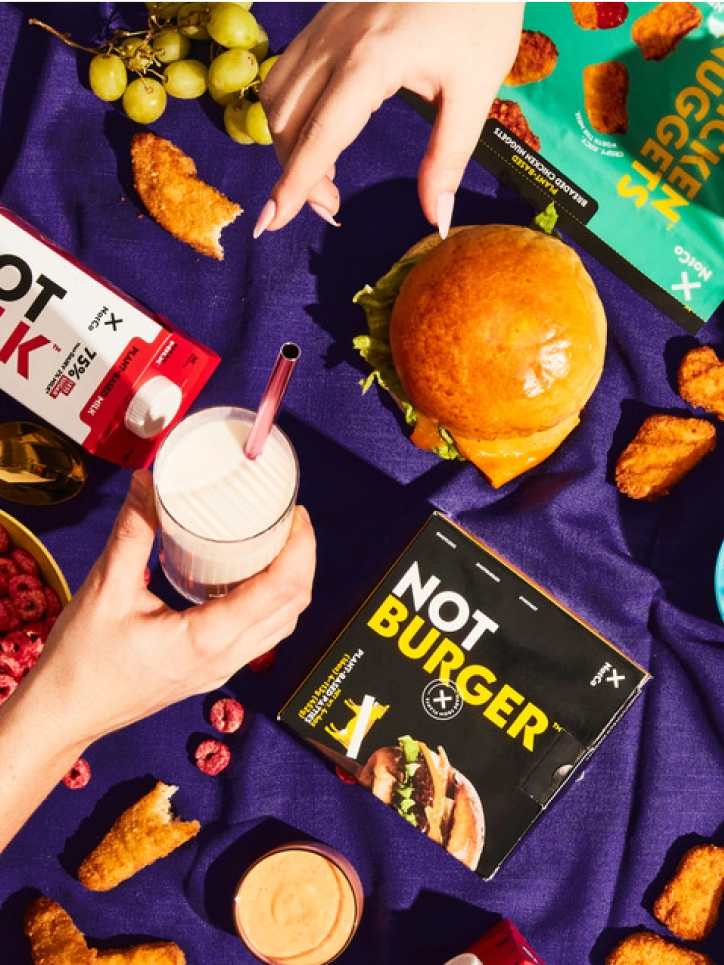
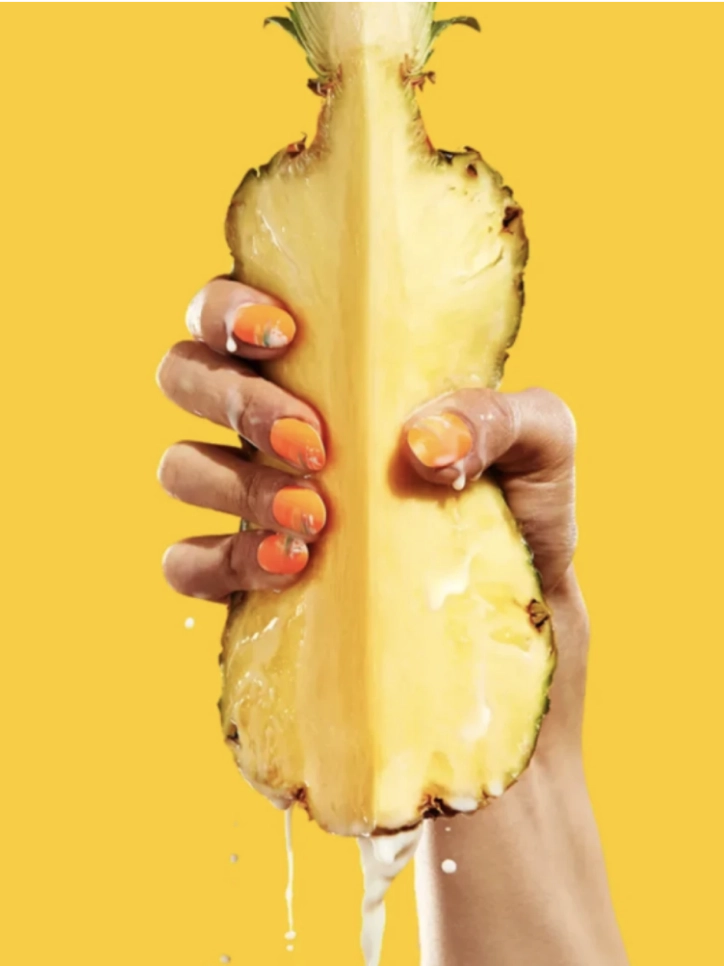
“I think it’s funny that you still need to make the case for creativity.”


